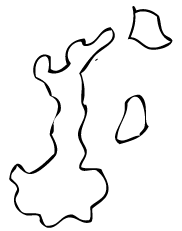According to a brutal definition, Data Journalism is “Journalism with Data“. Even though this data can come from a variety of sources, Open Government Data is seen as a gold mine. A data journalist could be interested, for example, in tracking crimes through local crime data or discovering specific episodes of corruption and misuse of public funding thanks to the data on public spending.
Now let’s see this from the perspective of the government. As more and more public sector organizations are venturing in the world of Open Government, the actual (re)use of their own Open Data is a measure of success of their strategy. And there is no doubt that Data Journalism is one of the best examples of re-use of Open government Data that can create public value.
It’s fascinating to see how many public administrations around the world are now aiming to actively involve data journalists in their Open Government programs. From my experience, this collaboration has taken three different forms so far:
- [SOFT] The staff of an Open Government program participates in “data journalism hackathons” or other events organized by journalists. The government employees offer their knowledge about the data and the data journalists find a story worth telling.
This is what happened, for example, during the hackathon of the International Journalism Festival in Perugia, Italy. Representatives of some Italian Ministries first presented their data to the journalists and then stayed all day to answer their questions and work with them. - [MEDIUM] The government offers “training sessions” to journalists. Sometimes the data are difficult to understand because a specific jargon is used or the policy is so complex that at least a basic knowledge of some technical aspects is essential. The events are held on the government premises and are aimed at providing the journalists with the “right tools” to analyze the data (how to create a map or an interactive graph) and to interpret it.
For example, the European Commission recently organized a “school” for journalists focused on EU funds. - [HARD] The government hires data journalists. A data journalist working for the government can assume the role of communication officer and create visualizations and articles based on the government’s communication strategy. This is the case of the French portal Gouvernement.fr that recently added an “infographics” section (“les infographies et videos”) and is now looking for data journalists to create eye-catchy visualizations and content.
But journalists can also have different roles, especially when working for specific Open Government initiatives. For example, a data journalist is part of the team of OpenCoesione School, a special project that involves high school students in the development of an investigation on the use of public funding through open data.
In the last few days I noticed a couple of interesting tweets on this.
An initial reaction to the “Medium scenario” (government training journalists) takes into consideration the principle of independence. In a tweet, the civil servant and public policy expert Tito Bianchi said:
What is this shiver i feel in my spine every time I hear someone proposing to “train journalists” to correctly interpret data?
— Tito_Bianchi (@Tito_Bianchi) September 29, 2014
However, an evidence-based debate in the press is possible only if the data are not misinterpreted, and working with the sources of information is a key part of the game. In addition, journalists may have limited quantitative skills to analyze the data or limited knowledge of the technicalities of a specific public policy.
As for the “Hard scenario” (government hiring journalists), the experienced data journalists Nicolas Kayser-Bril commented on the French case with these words:
If you want to switch from data-driven journalism to data-driven propaganda, the French government is hiring http://t.co/nhxJjmc3iu — Nicolas Kayser-Bril (@nicolaskb) November 5, 2014
Nonetheless, he added that this could be an option if the agencies that are hiring are “independent, state-financed authorities that can scrutinize gov’t action, such as ombudsman, transparency authorities, courts of auditors”.
@luigireggi Well, some countries do have independent, state-financed authorities that can scrutinize gov’t action, so why not
— Nicolas Kayser-Bril (@nicolaskb) November 13, 2014
Do you think that a public agency should proactively involve data journalists? In which forms? Are there some “special cases”?
Under what conditions should a journalist accept to collaborate with an Open Government program?
Photo by Ahmad Hammoud


